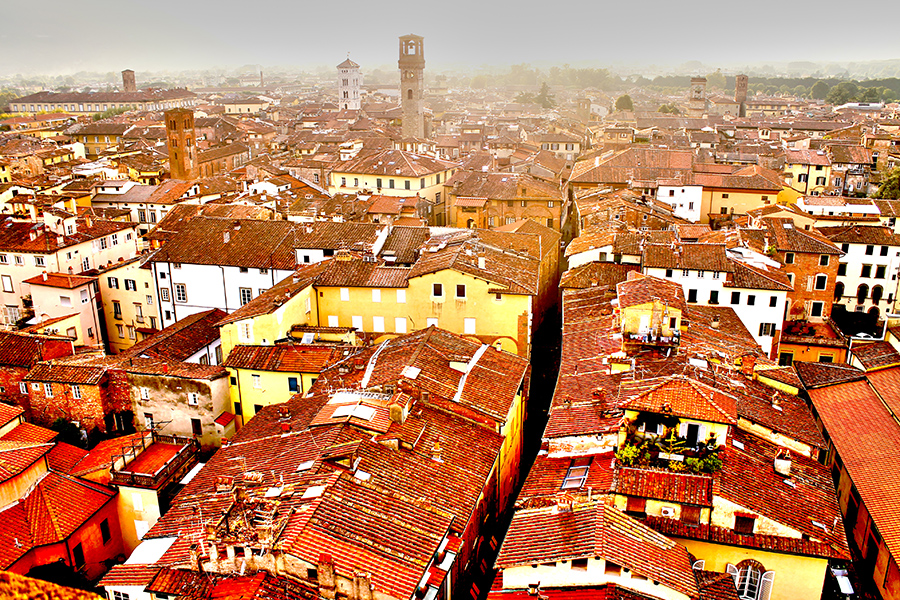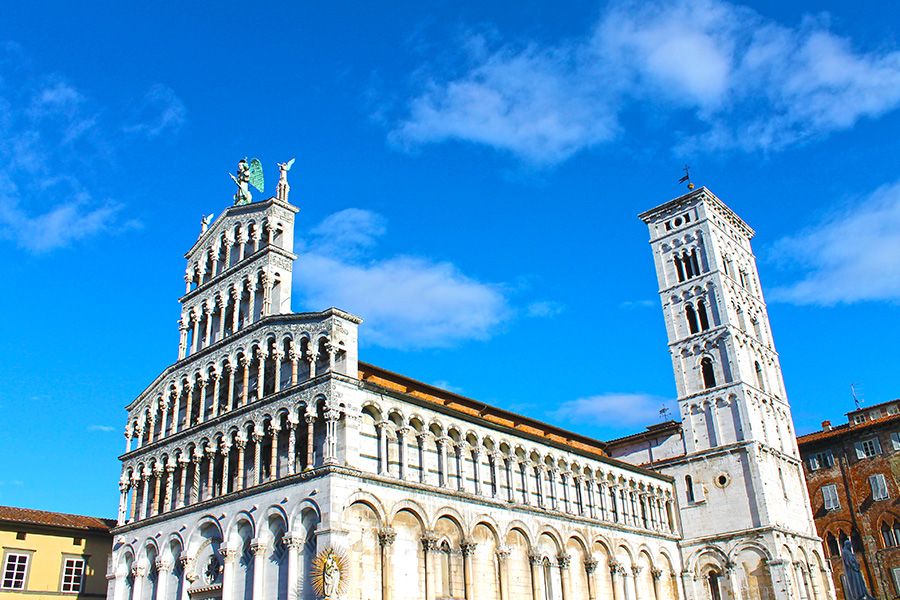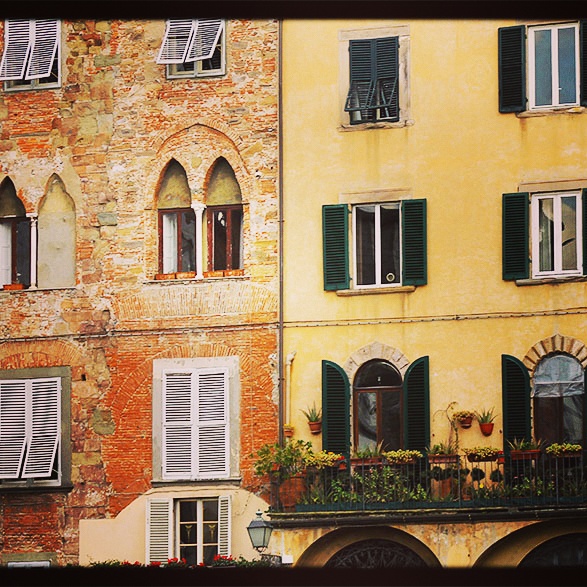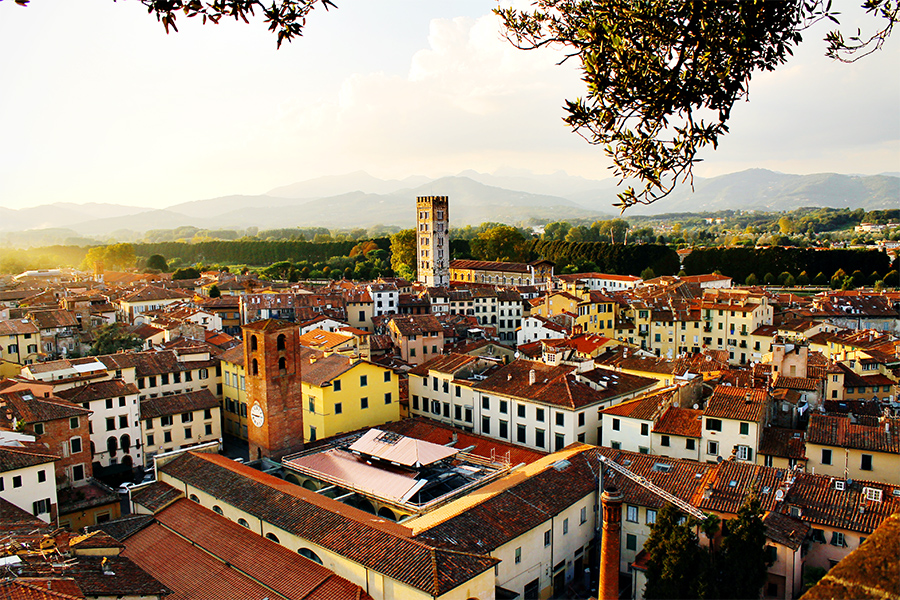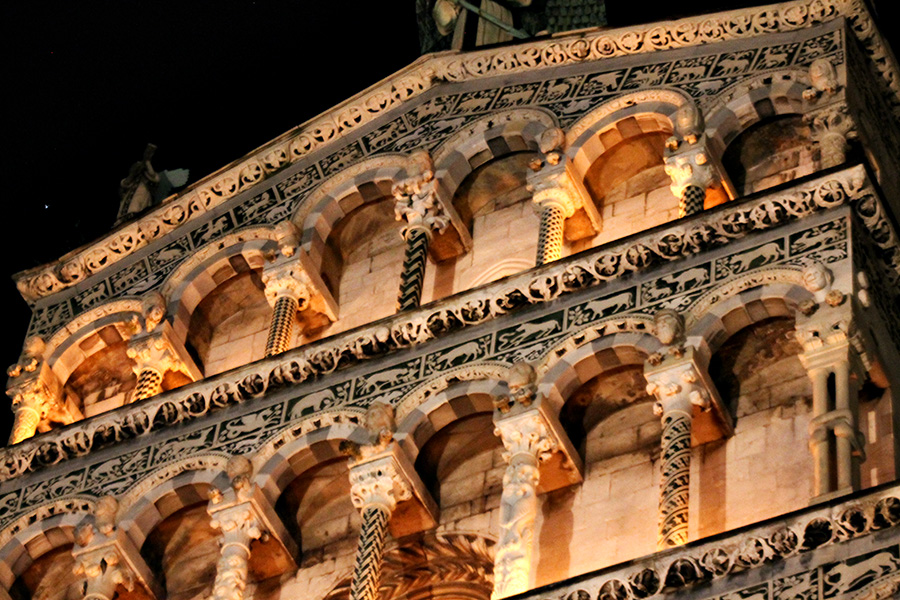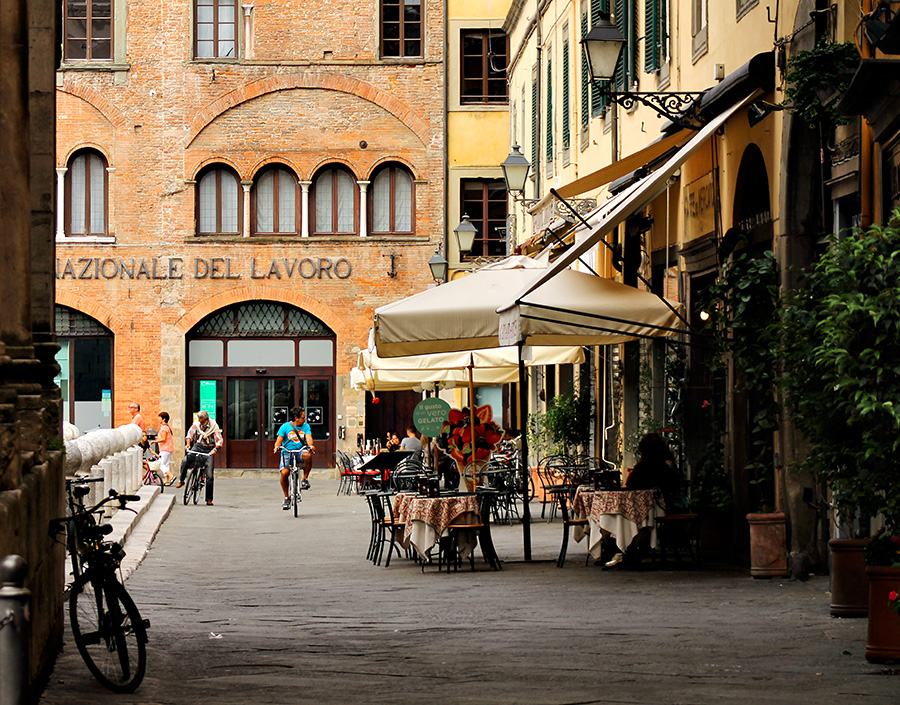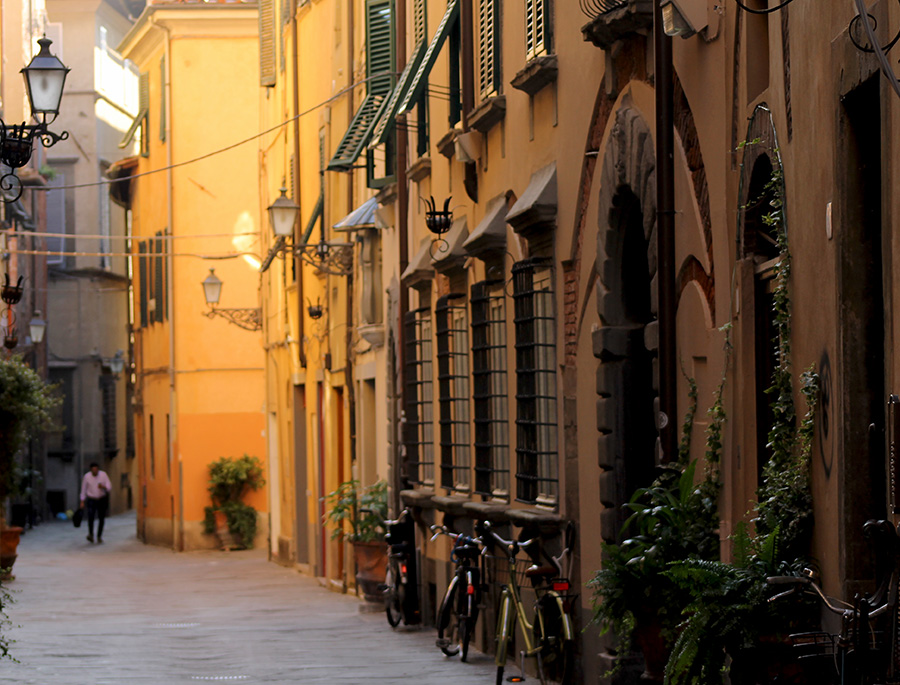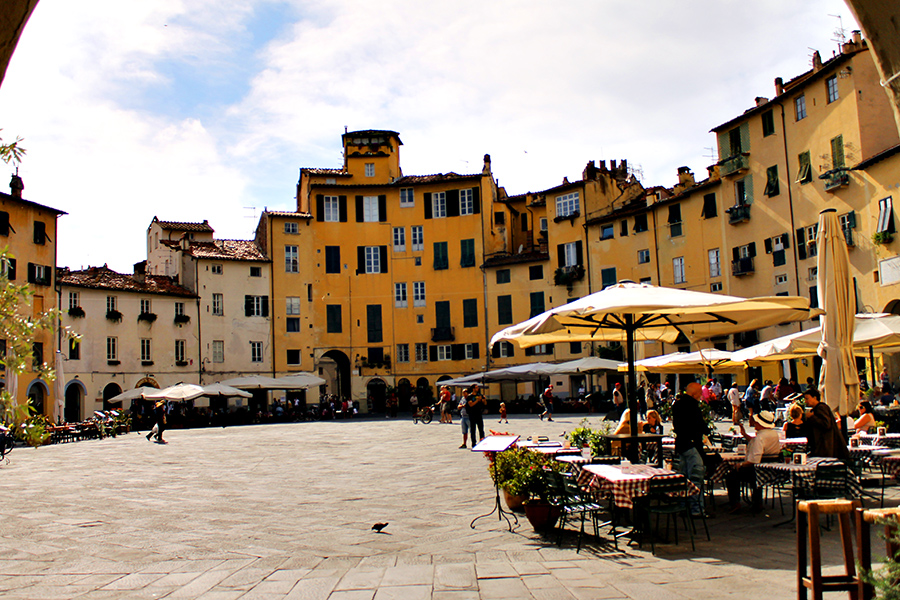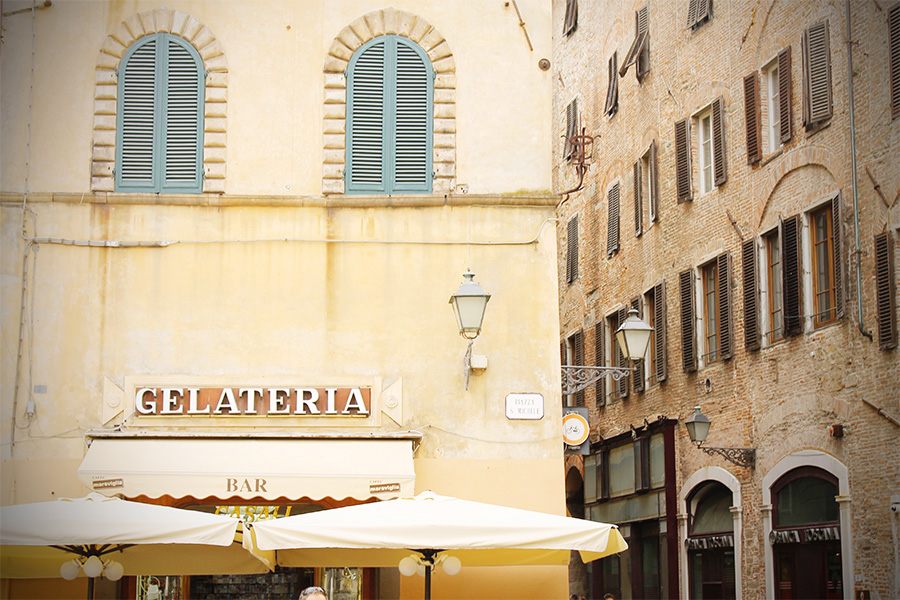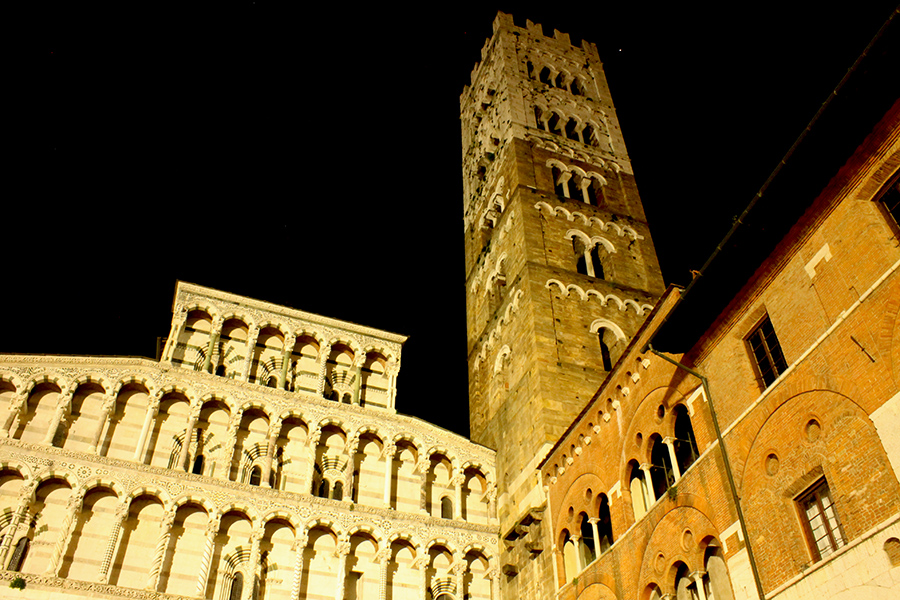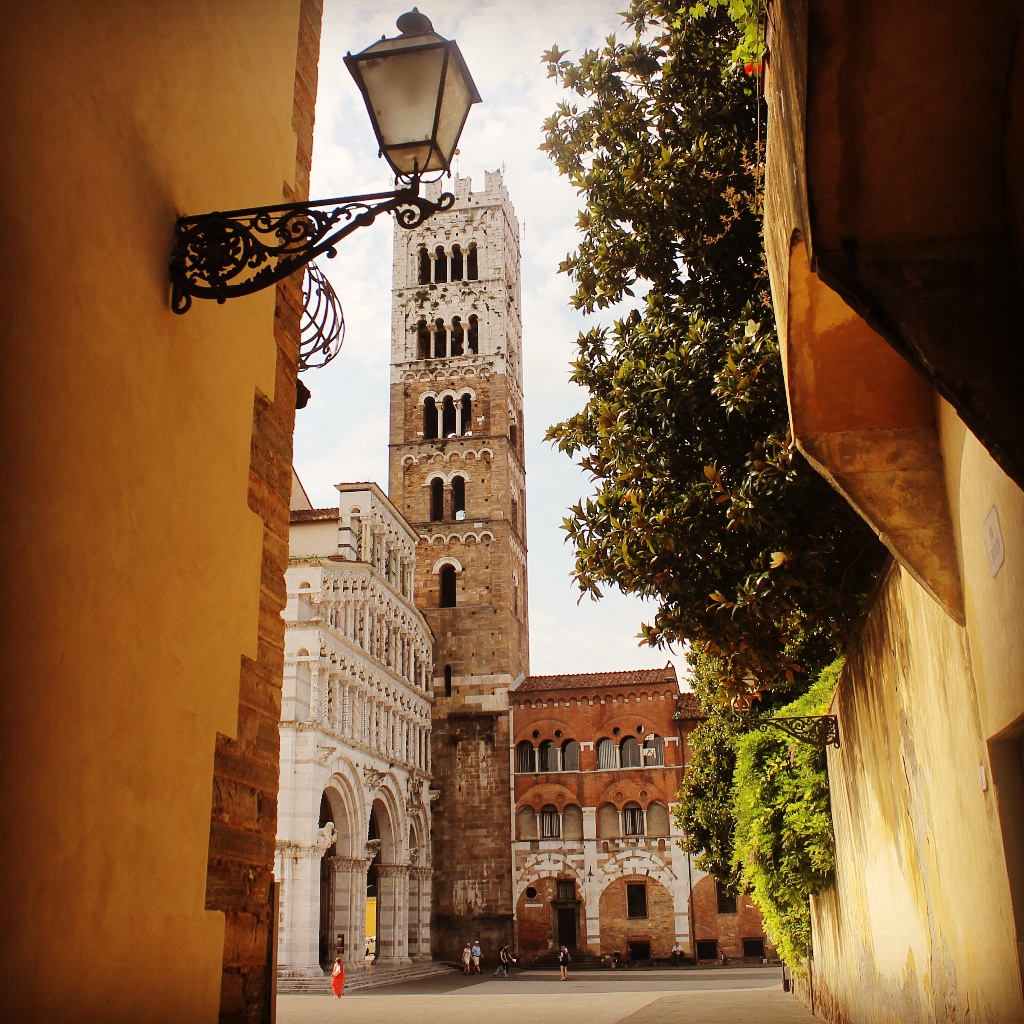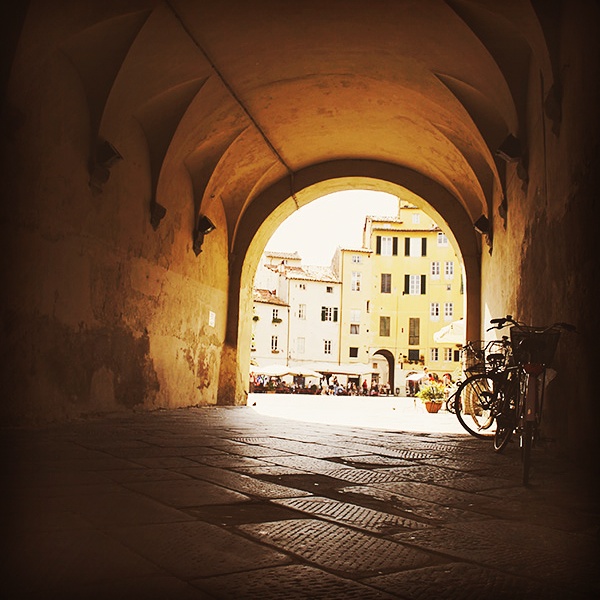Euroacademia Conferences
 Europe Inside-Out: Europe and Europeanness Exposed to Plural Observers (9th Edition) April 24 - 25, 2020
Europe Inside-Out: Europe and Europeanness Exposed to Plural Observers (9th Edition) April 24 - 25, 2020 Identities and Identifications: Politicized Uses of Collective Identities (9th Edition) June 12 - 13, 2020
Identities and Identifications: Politicized Uses of Collective Identities (9th Edition) June 12 - 13, 2020 8th Forum of Critical Studies: Asking Big Questions Again January 24 - 25, 2020
8th Forum of Critical Studies: Asking Big Questions Again January 24 - 25, 2020 Re-Inventing Eastern Europe (7th Edition) December 13 - 14, 2019
Re-Inventing Eastern Europe (7th Edition) December 13 - 14, 2019 The European Union and the Politicization of Europe (8th Edition) October 25 - 26, 2019
The European Union and the Politicization of Europe (8th Edition) October 25 - 26, 2019 Identities and Identifications: Politicized Uses of Collective Identities (8th Edition) June 28 - 29, 2019
Identities and Identifications: Politicized Uses of Collective Identities (8th Edition) June 28 - 29, 2019 The European Union and the Politicization of Europe (7th Edition) January 25 - 26, 2019
The European Union and the Politicization of Europe (7th Edition) January 25 - 26, 2019 7th Forum of Critical Studies: Asking Big Questions Again November 23 - 24, 2018
7th Forum of Critical Studies: Asking Big Questions Again November 23 - 24, 2018 Europe Inside-Out: Europe and Europeanness Exposed to Plural Observers (8th Edition) September 28 - 30, 2018
Europe Inside-Out: Europe and Europeanness Exposed to Plural Observers (8th Edition) September 28 - 30, 2018 Identities and Identifications: Politicized Uses of Collective Identities (7th Edition) June 14 - 15, 2018
Identities and Identifications: Politicized Uses of Collective Identities (7th Edition) June 14 - 15, 2018
Europe Inside-Out: Europe and Europeanness Exposed to Plural Observers (9th Edition)

- Conference Description
- Conference Panels
- Propose a Panel
- New Panel:Thinking Europe
- New Panel: Europe and the European Union
- New Panel: Art and History in the Making of European Identity
- New Panel: European Cultural Heritage
- New Panel: Performing Identity
- New Panel: (En)Gendering Identity
- New Panel: European Urban Transformations
- Participant’s Profile
- Registration and Fee
- Social Activities and Publication
- Important Dates
- Venue and Directions
- Apply Now
9th Euroacademia International Conference
Europe Inside-Out: Europe and Europeanness Exposed to Plural Observers
THE CONFERENCE WILL BE POSTPONED AND NEW DATES ANNOUNCED WHEN POSSIBLE
24th – 25th of April 2020
Lucca, Tuscany, Italy
DEADLINE 23rd of March 2020
Conference Description:
Europe became in the 20th century an elaborated yet contested notion as a particular field of European studies emerged, and extensive and diverse research was directed recently towards an intensified search for what Europe is about. The creation of the European Union made things even more specialized and increased the stake of methodological rigor as more and more Europeans are affected by the decisions taken in Brussels. The number, diversity and quality of research projects focused on European issues is unprecedented, yet, as it is usually the case with specialization, it gradually led to discursive communities that rarely meet and debate their approaches in open floors together with peers from other continents, disciplines, academic traditions and cultures. It is the aim of this conference to build a bridge among specialists from different backgrounds, regions, academic traditions and cultures that share a common interest in studying and addressing Europe as a reflexive concern.
The 9th International Conference ‘Europe Inside-Out: Europe and Europeanness Exposed to Plural Observers’ aims exactly to refresh a broader approach and understanding of Europe by enlarging the platform of regular conferences and workshops for a wider arena of participants and disciplinary backgrounds in order to put on stage a worldwide monadology for such concerns. It is an intellectual event that addresses constructive thinking. The conference aims to enable critical alternatives to the disciplinary orthodoxy by creating a framework for interaction and dissemination of diversity that has to become once more a European trademark. The conference also aims to become a constructive confrontational space for alternative methodologies, provocative puzzles, inter, multi and trans-disciplinary understandings for wider and also for thinner specialized issues of concern on or about Europe of today and tomorrow. In a way, the conference stands to become a moment of return to the European specificity of critical self-understanding through dialogue and debate with all the discursive or narrative traditions that directly or indirectly constitute Europe in its plural facets.
What is Europe and its place in the world? Is there something particular that sediments in time a ‘European way’? How does Europe see itself and how do others see it? Is Europe inclusive or club-based exclusive? Is Europe becoming a normative power or just envisages itself as one? Is the European multiculturalism a fact or an ideal? Is the European Union a reflection of Europe or an appropriation of it? Is European unity a fact or an illusion? Is Europe heading towards a post-national cosmopolitan order or returning to a Europe of nations? What is the European identity? These are just few questions out of an enormous space for inquiry that are to be addressed and confronted within the topic of the conference.
The Euroacademia International Conference ‘Europe Inside-Out: Europe and Europeanness Exposed to Plural Observers’ became a regular event to take place in every year in a different European location in order to immerse participants in the European culture and identitarian loci. After eight successful editions – in Vienna, Paris, Prague, Athens, Barcelona, Nice, Porto and Dublin – Euroacademia moves the stage of reflection, sharing, dialogue, debate and research dissemination on Europe to Lucca in Tuscany, Italy. Join us!
Conference Panels
The Conference is organized around but not limited to the following tentative panels or topics:
- Diagnostics of Our Times: Where Is the 21st Century Europe Heading?
- Thinking Europe: Contributions to Understanding a Claimed Unity
- Europe and Identities
- European Cultural Heritage – Contemporary Readings
- EU and Appropriations of Europe
- Europe and the Inclusive/Exclusive Nexus
- European Markets, Capital and Inequalities
- Europe and the Construction of Individual Autonomy
- How Plural European Societies Truly Are?
- Europe and the United States
- Europe and Anti-Americanism
- Europe as Seen from its Eastern Neighbors
- Europe and the Mediterranean Assortment
- Social Causes and the Pursuit of Social Beliefs in Europe
- Protest and Social Change
- Re-Thinking European Revolutions
- Europe as Viewed from Far Away: Narratives of the Europeans Outside
- Europe as Viewed from Asia
- Changes in the American Perceptions of Europe
- European Values and the Process of Europeanization
- Non-Familiar Faces of Europe
- Critical Economics and the Eurozone
- Post-Modernism and the Critique of European Modernity
- Knowing Europe in a Different Way: from Latin America to Australia
- Debating the End of European Solidarity
- Europe and the EU as a Normative Power
- The Multiple Faces of Europeanization as a Process
- Core and Non-Core Europe?
- Multicultural Ideals versus Reality
- Explaining the Growth of Far Right Movements and Parties in Europe
- Eastern Europe and the Enrollment to the School of Europeanization
- Europe and the Logic of Growth through Austerity
- Crises of European Culture
- Europe and Cosmopolitanism
- Europe and the Post-National Orders
- European Narratives of the Past: The Mnemonic/Amnesic Nexuses
- European Literatures and Authors
- Europeanization versus Globalization
- Europe and Conflict Resolution
- Europe, Migration and Asylum Policy
- European Social Models: Welfare States and Neoliberal Suspicions
- The Illusory Charity and Imagined forms of Contemporary Humanism
- The Growing Social Irrelevance of European Philosophy
- Is There a European Art?
- How Does Europe Look Back at Traditions?
- European Symbols and Representations of a Common Identity
- The Myth of Cosmopolitanism and the Search for a European Demos
- Europe and Russia
- Europe and US in the Trump ‘Era’
- The Impact of Brexit on European Unity
- European Diplomacy and Consensus in Foreign Policy
- European Security Strategies and the Future of NATO
- Feminist Readings of Contemporary Europe
- Post-Colonialism and the Refurbished Other(s)
- Theory and Power
- Queer Theory and Living After the Sexual Revolution
- Subaltern Theory and Post-colonialism in Europe
However, if you are willing to propose and/or chair a particular panel, we welcome you to advance your proposal in the Propose a Panel section.
Propose a Panel
Each Panel may contain a maximum of 5 speakers and a Chair that will act also as discussant in the proceedings.
Deadline for Panel Proposals: 15th of March 2020
Panel Proposal
Powered by Fast Secure Contact Form
Thinking Europe: Philosophy, Autonomy and Culture
Panel Description
Europe was not evolutionary shaped as a unitary entity but emerged from a tumultuous history as a ‘self-organizing vertigo’ (Edgar Morin). Some cultural unity within Europe is claimed by the daily mentalities and discursive practices even if it’s just under the form of a unita debole, to put it in Gianni Vattimo’s terms. The ‘European dream’ (Jeremy Rifkin) forms at the crossroad between the ideal and real multiculturalism. Europe became a category of thought – even if an essentially contested one – through dispute, difference, inclusive and exclusive practices. The idea of a Europe often involves a persistent and camouflaged historicism intrinsic in the European version of quasi – universalistic modernity (Gerard Delanty). The works of Cornelius Castoriadis on reflective questioning of socially instituted representations are useful in reminding us of what Europe stands for as a project among others. If there is a minimal specificity of Europe that could be defended, Castoriadis has argued throughout his work, it is precisely the lack of an unquestionable point from which a European distinctiveness could be reified. By historical contingency, for Castoriadis, it was in Europe that a genuine interest in the others as others emerged in the frame of the project of social and individual autonomy originated in ancient Greece and reasserted by the European modernity. The project of autonomy as essential for the European self-configuration implies an unlimited possibility of questioning our own institution and of acting in regard to it. The European specificity comes from its traditions originated in Ancient Greece encouraging the constant and never-ending reflective re-evaluation.
This panel aims to revisit precisely this patrimony of critical thinking. It is the belief implicit in this panel that the contemporary understandings of Europe should be placed more firmly within this tradition of aspiration for autonomy as putting into question the institutions of the society and their emanated representations and shake the walls of their cognitive closure. This is because, autonomy as unlimited questioning is a premise and not an outcome of European culture. The patrimonial European identity can be conceived as an experienced identification with a generous culture from which many individuals extract and share feelings of belonging. It is the role of critical thinking and philosophy to place the Europeanness in touch with its generous, magmatic cultural elements and question historically circumstantial projects of political appropriations of identitarian claims.
The panel welcomes papers on any theoretical effort for understanding Europe and Europeanness, be it contemporary or a call to re-reading the past.
Some suggested topics for the panel are:
- Thinking Europe – Arguments for a Fragile Unity of the European Culture
- Ancient Greece and the Theoretical Foundation of the European Project
- Elements of European Histories of Philosophy
- Philosophy and Culture: Specifics of the European Thought
- Renaissance and humanism influence on modern identity
- Autonomy, Critical Evaluation and Culture
- European Philosophical Traditions
- Fragments of European Political Thought
- Eurocentric Thinking and Claims of Universalism
- European Thinking and the ‘Other’
- Is there a European Philosophy Pedigree?
- Castoriadis: Europe and Autonomy
- Derrida: Europe as a ‘Pre-Adult’ Space of Liberty
- Foucault and Eurocentric Thinking
- Enlightenment, Modernity and Grand Narratives
- Europe and the Responsibility of Thinking
- The Future of European Thinking
Please apply on-line or submit abstracts of less than 300 words together with the details of affiliation by 23rd of March 2020 to [email protected]
Europe and the European Union: Politicizing Europeanness
Panel Description
Historically, the EU is both curious and controversial: it is hard to explain from a state-centrist view the delegation of sovereignty and the fragile agreement on the gradual extension of the EU powers together with externalizations of the decision making to a polity that can be described, as Jacques Delors expressed it, as an UPO (Unidentified Political Object). However, in the last 60 years the European Union absorbed increasing amounts of intellectual and political energies that attempted to singularly or complementary explain the nature of the beast and the logic of the processes unfolded within. A large amount of theoretical assumptions, methodological choices and explanatory techniques were imported from different fields of research to constitute what gradually took the shape of the EU studies. Still today, the European Union is seen as a unique project of regional integration that is unsettled and unfinished and yet a particular scientific vocabulary takes shape and influences research and policy making. The present panel aims to take into account the enormous creative energies invested in understanding and shaping the project of the European Union from the limited competences granted at the creation of the European Economic Community till the current formulation of the post-national understandings of its evolution.
This panel aims to bring openly on the floor of debate both the past and the contemporary trends in the study of the European Union trough the use of the magnifying glasses. The panel seeks to create an opportunity for evaluative accounts of essential developments within the study of the European Union. These accounts are to be understood as creative moments for articulating current concerns in the frame of disciplinary dialogue and methodological constrains or opportunities provided by the established traditions in the field of European studies. It is an opportunity for revisiting and assessing the persistent epistemological challenges in the field, the inheritances and their creative potential, the orthodoxies but also the heresies. In the current global and regional political context, an evaluation of instruments and strategies at hand in understanding the dynamics of the Union are essential. The panel aims at addressing the challenges of the rise of populism and nationalism in Europe as well as the need to re-think the strategic and security identity of the EU in the context of the Donald Trump as elected American President. The implications of the Brexit and increasing discussions in other EU countries on the potential exiting the Eurozone or the EU are subjects to be seriously addressed and preferentially included in the panel.
The panel welcomes contributions on the following topics (you by no means limited to):
- Before the European Union: The Initial Assumptions and the Historical Choices Revisited
- Remembering the History of the EU: From Trauma to Persisting Peace
- Neo-Functionalism and the Persistence of Spill-over Effects
- The EU Studies and IR Conceptual Imports: An Assessment
- The Regulatory Theory and EU Efficiency
- Is the EU an Inter-Governmental Organization Again?
- Addressing the European Identity: How and How to Measure It?
- The Lessons of Enlargements
- The Future of Enlargement
- EU as a Political System
- EU as a Normative Power
- Working Hard to Find a European Demos
- Cosmopolitanism and the EU as a Post-National Order
- The Effects of Crises on the EU
- The Crises of European Solidarity
- EU and the Choice for Austerity Politics in Exiting the Crisis
- Greece and the Crisis of the Eurozone
- The European Elections and the New Right Parties in the European Parliament
- ECB and Crisis Management
- Exiting the Eurozone: A Real Choice?
- EU and Asylum Policy
- EU and the Future of European Security
- EU – US Relations in the Trump ‘Era’
- Implications of the Brexit
- Comitology and the Democratic Deficit in the EU
- Exit Scenarios from other EU Members
Please apply on-line or submit abstracts of less than 300 words together with the details of affiliation by 23rd of March 2020 to [email protected]
Art and History in the Making of European Identity
Panel Description
Identities are socially attributed imaginary significations. They are part of the dynamic projects of individual and social autonomy (C. Castoriadis). Nothing shapes, represents or reflects better the imaginary constructions of particular societies than arts. The artistic perception and practice are often identity making processes while the object of art can be a direct or indirect embodiment of experienced identities. At the outcome line of the process of artistic creation, the perception of the objects of art as oeuvre is an identification with cultural claims for specific aesthetic standards.
Art has a tremendous impact in indicating or shaping various dimensions of multilayered identities. Trough time art represented or influenced human visions of life and death, natural or supra-natural, meanings of life and daily practices, beliefs and their expression, history and change, places and differences. Art is simultaneously a process of building contextual cultural identifications and an instrument for cross-cultural dialogue. Arts supported the symbolic legitimating of various political orders and had an essential role in the creation of national identities. Arts shaped cultural aspirations and credos as an effective element of cultural innovation, change and openness to new. Through imaginary representations, art inserted divisions and differences among cultures and self-perceptions of people yet also opened the path of curiosity for the other and the emergence of trans-cultural dialogue. As artistic visions touched upon the most intimate identitarian representations of individuals and societies, they exercise a fundamental role in the developments and dynamics of identity making processes. Arts deeply touched on social and self-representation through sculpture and portraiture, on civic identities through defining social spaces in architecture or quotidian perceptions through design, on social or political allegiances through symbols, iconic objects and cultural diplomacy, on acting identities through theater, literature or performance arts, on the formation of transnational and global symbols. They exercised an essential impact on the formation of social memories or in addressing inclusion and exclusion nexuses for the marginalized or oppressed. Art is as well one of the important modes for asserting identities.
This panel addresses explicitly and invites the theoretical or applied studies that relate artistic manifestations with identity making processes. As the universe of reflection and research on the topics involved are virtually unlimited and impossible to anticipate in full diversity, we welcome contributions that add value or challenges to the discussion of the topic.
Some suggested topics for the panel are:
- European Art and identity: a bidirectional influence
- Arts and the formation of social imaginary in Europe
- Art as search for self-expression and identity
- History, memory, art and identity in Europe: from literature to visual and performing arts
- Renaissance and humanism influence on modern identity
- Art and the creation of national identities in Europe
- Modern art and novelty as a value
- Portraiture and identity: from painting to sculpture and photography
- Performing identities: identity and performance in literature, theater and the performing arts
- The body in art
- Art and expressions of gender identity
- Photography and identity making: from single images to serial portraits
- Identity and migration or displacement in art
- Alberto Giacometti and Constantin Brancusi: the human and the absolute
- Picasso and Modigliani: images of a deeper self
- Cindy Sherman: the nature of representation and construction of identity
- Architecture and urban vision: from civic identities to globalization
- Contemporary design and the visions of life and the self
- Displaying allegiance: from ideological art to political symbols
- Fashion and social staging of personal identity
- Cinematography and identitarian representations
- Art and cross-cultural dialogue
- Art and post-colonialism
- Repressed identities and arts
- Art and search for recognition: expressing cultural heritage
- Art, infinite reproduction and the global village
- Kitsch and identity
- Museums, galleries and exhibitions: displaying identities
Please apply on-line or submit abstracts of less than 300 words together with the details of affiliation by 23rd of March 2020 to [email protected]
European Cultural Heritage – Celebrating Diversity
Panel Description
In 2017 the European Council and the European Parliament representatives took the decision of establishing a European Year of Cultural Heritage. 2018 was the year to fulfill for the first time the celebratory idea of a European Cultural heritage. The concept of European cultural heritage encompasses a variety of references to the European heritage in its most diverse dimensions. These include monuments, sites, traditions, transmitted knowledge and expressions of human creativity, as well as collections conserved and managed by museums, libraries and archives. The reference to the European cultural heritage is an opportunity to indicate the European unity in diversity but also the actual diversity in diversity. Since the European patrimonial inheritance is immense and intense, it is also fragmented in a mosaic that in its diversity stands for the authentic European cultural history. The European culture substantively precedes the European Union and it’s a precondition of its existence. This panel looks at the advancement of the European Year of Cultural Heritage as an opportunity for exchange and analysis of a common magmatic European patrimony.
The 2018 Year of Cultural Heritage was declared to be conceived as an occasion to `highlight the importance of European culture`. An importance that is however acknowledged in its grandeur and that needs constant deepening and re-visitation/interpretation. The European Year of Cultural Heritage was a bottom-up approach on the participatory governance of cultural heritage aimed to foster awareness on European history and values and to strengthen a sense of European identity. However, the patrimonial European identity goes in terms of temporal and geographical extensions well beyond the EU as a set of economic and political arrangements. This panel aims also to address cultural heritage appropriations in political projects inside the EU in asserting the intrinsic value of European cultural heritage for a European unity. The politicization of culture in the process of inventing a European identity co-substantial to the EU as an institution brings also about inclusion/exclusion nexuses and cultural recognition inside the EU.
This panel welcomes the most diverse and multi-disciplinary approaches to the European cultural heritage in holistic terms and/or detailed case studies.
Some example of topics may include (but are not limited to):
- Intellectual History and Cultural Heritage
- European Culture as Shared Patrimony
- Heritage and Diversity in Europe
- European Heritage and European Identity
- History, Heritage and Change
- Art History and European Artistic Heritage
- Monuments, Museums, Galleries and Exhibition
- Projects Promoting a European Dimension of Cultural Heritage
- History and Heritage: Sites of Conflict as European Heritage
- European Cultural Heritage and the Pre-National/National and Post-National Moments
- European Capitals of Culture and European Identity
- Local/National/European/Global Dimensions of Cultural Heritage in Europe
- Cultural Production, Mobility, Exchange and Cultural Heritage in Europe
- Urban Cultural Heritage as Identity-Anchor
- Minor Places: Dominant Culture and Site-Specific Urban Identities
- Architecture and European Heritage
- Art and Industry in Urban Development
- Urban Cultural Heritage
- Rural Cultural Heritage
- Industrial Heritage
- Cultural Tourism in Europe
- Forgotten or Ignored Sites of Memorialization
- Non-Monuments and Counter-Monuments in Europe
- Urban Landscapes and Sustainable Cities
- Heritage through Traces: Destroyed Sites and Monuments
- European Cultural Policy and its Impact on Cultural Preservation, Education and Promotion
- European Cultural Diplomacy
- European Cultural Dialogue and Exchange with Non-European Cultures
- Creative Societies and Cultural Production
- Assessments of Cultural Funding in the EU
- A European Culture to Protect: Sustainable Development and Preservation
- European Cultural Heritage, Euro-centrism and Multiculturalism
- Arts and Intercultural Dialogue
- Cultural Institutes and the Promotion of Cultural Heritage
- Lived Cultural Patrimony: Quotidian Sites of Cultural Heritage
- Preservation, Conservation, Restoration and Rehabilitation
- Mnemonic Loci
- Participatory Governance and Cultural Heritage
- Cultural Production, Markets and Globalization’s Impact on European Cultural Heritage
Please apply on-line or submit abstracts of less than 300 words together with the details of affiliation by 23rd of March 2020 to [email protected]
Performing Identity: The Relationship between Identity and Performance in Literature, Theater and the Performing Arts
Panel Organizer: Dr. Panayiota Chrysochou
The University of Cyprus
Panel Description
Identity is often seen as being a controversial topic. Whether it is fictive or real, (de)politicized and/or aesthetic, gendered or engendered, identity is often seen as being a powerful political tool and an essentially social construct. It also allows individuals to define themselves. In a sense, we perform our own identities everyday – or, perhaps, we perform a wide range of different identities at any one time. We implicitly live in a society which constructs various definitive identifications, and which often sees the rigid maintenance of hierarchical systems and exclusive ideological constructions of gender, identity and sexuality, or what Judith Butler defines in her work Bodies that Matter as an ‘exclusionary matrix.’ This has often resulted in the displacement of any discursive systems which resist these exclusionary systems. This panel seeks to give voice to discursive systems which have so often been displaced by exclusionary systems of identification. The main exclusionary focus in culture and the arts has often been on the white, heterosexual and supremacist male (or female). To rectify this oversight, this panel seeks to address any works of art and culture which are directly and explicitly related to the performance of identity from a different standpoint – that is, one which is not exclusively heteronormative and heterosexual.
We welcome any papers which focus on the following topics:
- Identity as a performative and political tool and/or as a site of political resistance and change
- The work of gay/lesbian or drag performance artists who do not form part of the white, male/female and heterosexual/heteronormative matrix
- Identity as a fluid and shifting construct in the theatre, the performing arts and literature generally
- Cultural and literary works or works of art which resist fixed identifications and engender performative meanings/ways of ‘reading’
- The abject as a site of identification
- Gender and identity formation
- Sexuality as a performative and identificatory construct or mode of identification
Please apply on-line or submit abstracts of less than 300 words together with the details of affiliation by 23rd of March 2020 to [email protected]
(En)Gendering Identity: Gender in Culture, Education and Society
Panel Organizer: Dr. Panayiota Chrysochou
The University of Cyprus
Panel Description
In Judith Butler’s highly influential and groundbreaking book ‘Gender Trouble: Feminism and the Subversion of Identity’ (1990), Butler pokes fun at the notion that there is an ‘original’ gender to which we can ascribe, and playfully asserts that all gender is in fact scripted, rehearsed, and performed. To what extent can we challenge the notion that there is no fixed and gendered identity? Is it true to say that there is no such thing as real or true gender and/or that it is merely a constructed entity upon which implicit and invisible assumptions are heteronormatively entrenched in a patriarchal society? Can we really move beyond or outside gender and gendered constructions of identity? What are the stakes of eliding gender altogether? Is identity a fixed concept? Such questions become even more imperative nowadays given the growing politico-cultural tendency to assume that gender is an existing given which can either be singled out as a unique form of oppression or a systematised and neat classification in education, culture, and society at large. A case in point is the Universities UK’s recent report which endorses gender segregation at university events.
This panel seeks to explore and address these issues in a number of ways. Broadly speaking, we welcome abstracts which engage with gender issues as documented in case studies, stories, on stage and in the literature, and particularly welcome papers which unsettle the fixed and divisive binary of ‘subject/object’, ‘man/woman’ and fixed notions of gender and identity politics.
We welcome any papers which focus on the following topics:
- Notions of gender and identity politics in literature and the performing arts
- Gender dysphoria, gender reassignment and drag
- Gender issues in higher education, culture, religion and society
- Ways of destabilising notions of a fixed and gendered body and identity politics and/or potentially moving beyond or outside gender definitions
- Gender and trauma
- Gender and identity formation
Please apply on-line or submit abstracts of less than 300 words together with the details of affiliation until 23rd of March 2020 to [email protected]
Urban Transformations, Transition and Change in European Urban Image Construction
Panel Description
Urban image construction is a reflection, expression and constitutive factor of local identity formation and dynamics. Cities simultaneously localize identities and connect them with wider global signs of utility, function and symbolic order. Elasticity of the label identity accommodates everything that surrounds us as presence or absence, persistence or change. As a theatrical scenery, cities change after each act, sometimes with discrete adaptations, sometimes with radical interventions. If the scenery is composed of streets, parks, roads, museums, monuments, shopping malls and buildings connected through the intricate network of the perpetual and cumulative actions of its inhabitants, every adaptation and intervention affects its multi-dimensional identities. Changes in urban visual identities unfold as a form of public art feeding from the immense potential of social imaginary significations accommodated by a time’s perception of stability, structure and continuity. Urban change is itself a production of meaning, interpretation and identity making practices.
As the chaotic canvases of cities are being stretched over a framework of identity, its further exploration seems more than appropriate. Amidst the incredibly rapid urban growth crowding more than half of the world population in towns and cities, the questions are only going to keep multiplying. How are city identities made and re-made, used and abused, imagined and narrated, politicized and communicated, expressed and projected, imposed and marketed? And above all, how do they thrive within the dynamic interpolation of the nexus of local-global, center-periphery, urban – suburban, old and new. As out-dated as these dichotomies may sound, in many places their daily life is far from over. As old cities became new capitals and new capitals struggle for more capital, the challenges of maintaining public-driven collective identities in the face of cultural fragmentation and diversification, coupled with consumer-attractiveness is turning them into urban palimpsests. Urban environments reflect the human needs and values. In an increasingly globalized world, the human beings are becoming more citizens of the world than citizens of the cities. The increasing mobility of the new pilgrims of globalization creates more of the same in the logic of universalized urban functionality. Within this logic, the cities are now in the position to re-evaluate their impact on the world and shape their future in a manner that assumes a wider responsibility that evades a localized mentality. Urban local identities are becoming increasingly thin and rely strongly on negotiating a local specificity with universalized functionality and global responsibility. An increasing need for uniqueness and distinctiveness foster site-specificity aimed at placing a particular urban identity within a global economic hierarchy. Public art became essential for affirming distinctive local urban identities in a universe of serialization and commodification.
As the research on cultural identities of the city is becoming more abundant, this panel aims at adopting a wide-lens inter-disciplinary approach, while focusing on various transitional processes affecting European identities in the urban context in its global-regional-national-local interplay.
Some example of topics may include (but are not limited to):
- Collective Memory, Identity and Urban Image Construction
- Appropriation, Instrumentalisation and Functualisation of Public Spaces
- Contemporary Nomadism and the City as a Common Denominator for Collective Identities
- Architecture as ‘Politics with Bricks and Mortar’
- History, Heritage and Urban Change
- Urban Regeneration Projects, Landmark Buildings and ‘Starchitects’
- Non-Places and (Non)Identity
- Immigrants and the Cultural Identity of Cities
- City Marketing and City Branding
- Cities and Public Goods
- European Capitals of Culture and European Identity
- Cities and Sites of Memorialisation
- Identity Creation and the Cultural Offer of the City
- Urban Cultural Heritage as Identity-Anchor
- Minor Places: Dominant Culture and Site-Specific Urban Identities
- Creative Changes of the Cities
- Art and Industry in Urban Development
- Urban Aesthetics
- Urban Installations
- Critical Architecture
- Urbanism and Social Intervention: Inclusion of the Marginalized
- Centre/Periphery Nexuses in Contemporary Urban Development
- Cities and the Quality of Life
- Urban Landscapes and Sustainable Cities
- Contemporary Cities and Environmental Responsibility
- Ugliness, Kitsch and Value in Shaping Contemporary Urban Spaces
- Urban Sites of Identification
- Temporary Urban Interventions
- Architecture as Public Art
- Urbanism and European Identity
Please apply on-line or submit abstracts of less than 300 words together with the details of affiliation by 23rd of March 2020 to [email protected]
Participant’s Profile
The conference is addressed to academics, researchers and professionals with a particular interest in Europe, Europe related and European Union topics from all parts of the world. As the nature of the conference is intended to be multidisciplinary in nature, different academic and intellectual backgrounds are equally welcomed. Cultural approaches, political studies, critical studies, out of mainstream approaches and artistic/literary contributions to the better understanding of Europe in its past present and future dimensions are all equally welcomed. Euroacademia favors inclusive alternative and innovative thinking proposals and non-mainstream methodologies.
Post-graduate students, doctoral candidates and young researchers are welcomed to submit an abstract. Representatives of INGOs, NGOs, Think Tanks and activists willing to present their work with impact on or influenced by specific understandings of Europe and/or the European Union are welcomed as well to submit the abstract of their contribution.
Abstracts will be reviewed and the participants are selected based on the proven quality of the abstract. The submitted paper for the conference proceedings is expected to be in accordance with the lines provided in the submitted abstract.
Registration and Fee
Registration Fee: 195 Euro
The Registration Includes:
- the registration fee
- official invitation
- full access to the conference proceedings
- participant’s dedicated package with all the materials for the conference
- eligibility for inclusion in the conference proceedings published volume
- a copy of the electronic volume
- access to Euroacademia discussion group and newsletters
- coffee brakes with snacks and refreshing drinks for all the duration of the conference
- seated lunch on 24th of April 2020 at Restaurant
- seated lunch on lunch on 25th of April 2020 at Restaurant
- certificate of attendance
- access to the optional social program
Unfortunately, Euroacademia has no available funds for covering transport and accommodation to/in Lucca. Participants are responsible for securing funding to cover transportation and accommodation costs during the whole period of the conference. Official invitation letters can be sent by Euroacademia to the financing institution to confirm the selection and participation in the conference upon request.
Social Activities and Publication
A specific spot in the conference program will be dedicated to social networking and therefore all the participants interested in setting or developing further cooperation agendas and prospects with other participants will have time to present and/or promote their project and express calls for cooperation.
A specific setting (Social Corner) for promotional materials connected with the topic of the conference will be reserved for the use of the participants. Books authored or edited by the participants can be exhibited and promoted during the whole period of the conference and can also be presented within the conference package based on prior arrangements.
Photos and videos will be taken during the conference and the organizers will consider through the participation of selected presenters or members of the audience that the agreement for being photographed or filmed during the event was granted through registration to the event. Please notify the organizers in written form prior to the the event if you are a confirmed participant and would prefer otherwise.
An optional dinner and a social event will be organized for each evening of the conference in a typical Tuscan cuisine restaurant, as optional program for the willing participants. The social dinner will be held based on participant’s confirmation and will be covered individually by participants on site.
Publication:
Selected papers are eligible to be published in an electronic volume with ISBN or paperback thematic volumes after the confirmation of the authors and a double peer-review process based on an agreed publication schedule after the event. All the papers selected for publication should be original and must have not been priory published elsewhere. All participants to the conference will receive a copy of the volume.
Specific selected papers will be also eligible to be published in CEJISS (Central European Journal of International & Security Studies)
About CEJISS
Formally launched in January 2007, CEJISS is designed as a double-destination scholarly bridge. The first bridge was constructed with Central Europe (Czech Republic, Hungary, Poland and Slovakia) in mind, focusing on increasing the audience for Central European scholars. In this regard, CEJISS is making a substantial impact as each issue attracts attention in some 45,000 people in nearly 160 countries. However, CEJISS is not Central European centric and invites scholars from around the world to contribute. This has meant that just as Central European scholars now have an easier time gaining a footing outside of the region, so international scholars also have an easier time getting in and making an impact here. With a mere two decades separating our times from the ‘darker’ Cold War years, CEJISS aims to contribute English language perspectives to the peoples of Central Europe and give the latter the amplification their research deserves.
| Important Dates | |
|---|---|
| 15th of March 2020 | Deadline for Submitting Panel Proposals |
| 23rd of March 2020 | Deadline for Submitting Paper Proposals |
| 24th of March 2020 | Final notification of acceptance |
| 27th of March 2020 | Sending the Registration Form |
| 2nd of April 2020 | Payment of the conference fee |
| 14th of April 2020 | Sending the draft paper to be uploaded on the conference website (optional) |
| 15th of April 2020 | Publication of the conference program and uploading the draft papers on the website |
| 24th of April 2020 | The conference commences at 9.00 am |
Venue and Directions
The proceedings of the conference will take place in the Auditorium of the Cultural Centre Agora in Lucca. The Auditorium is part of the Convento dei Padri Serviti built around 1300 by the order of Servi di Maria.The Auditorium is the restructured space of the Oratory of S. Lorenzo, built in 1480, but whose structure and interior was renovated without changes or interventions. A former church now de-consecrated, the Auditorium preserves all its historical architecture and features. The space above the area of the former altar includes a fresco of Guidotti, a well known painter from 1600, that represents the miracle of San Silao. The location of the event is centrally situated right in the heart of Lucca, few steps away from the San Martino Cathedral of Lucca, Piazza San Michele with its beautiful San Michele in Foro church and the renaissance walls that surround the historical city, making easily accessible within a walking distance any part of its amazing Middle Ages or Renaissance treasures. Via delle Trombe, 6 (Piazza dei Servi, Centro Storico) Lucca is one of the most beautiful cities of Tuscany, a treasure of beauty, culture and history, preserving exquisitely the signs of past kingdoms and dominions, the beauty of nature and the works of many renown architects and artists. Dante spent a part of his exile in Lucca. Located between Florence and Pisa, Lucca is the home town of Giacomo Puccini and Luigi Boccherini. Is a town where each of the streets has a story to tell. The city walls are the best preserved Renaissance walls in the world, offering the opportunity of a relaxing and enchanting ‘passeggiata’ (promenade) or a bike ride with amazing views over the surroundings. Piazza Napoleone -one of the main squares – was built in the time of Napoleonic conquest when the city was led by Napoleon’s sister Elisa Bonaparte. It is rivaled in beauty by Piazza del Amfiteatro, built to maintain the shape of the Roman Amphitheater built during the I and II centuries that could accommodate over 10,000 spectators. A city of 100 churches, Lucca is labyrinth of small streets that hide secrets to be discovered.
Agora Cultural Centre
55100 Lucca Tuscany, Italy
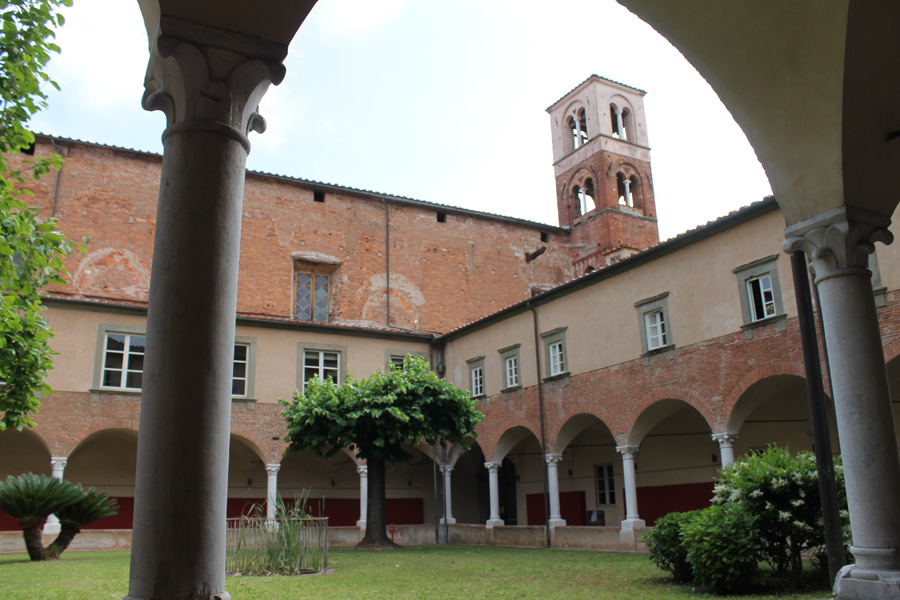
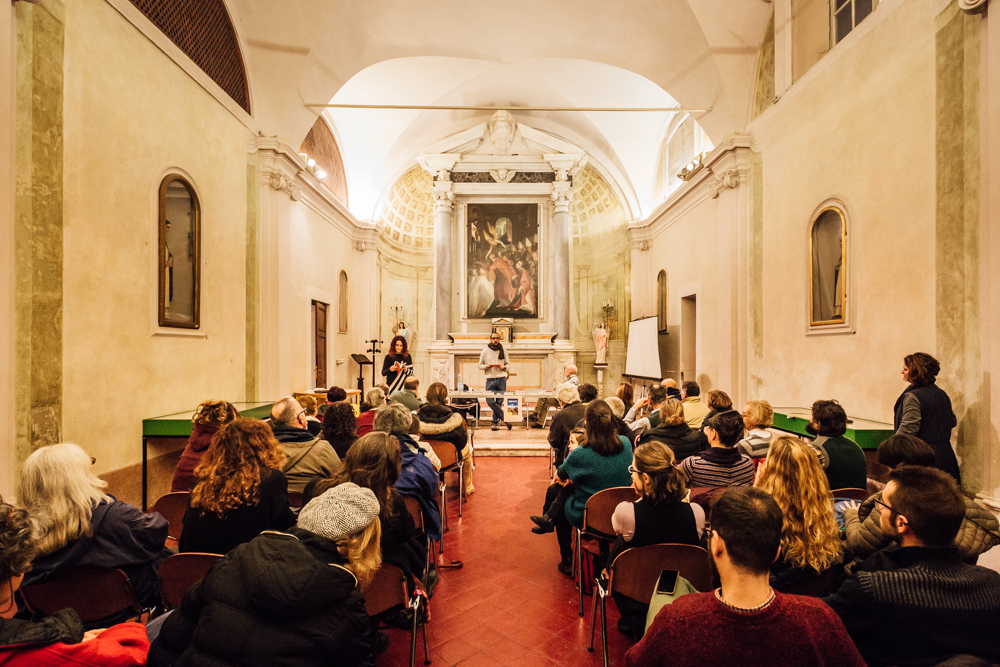
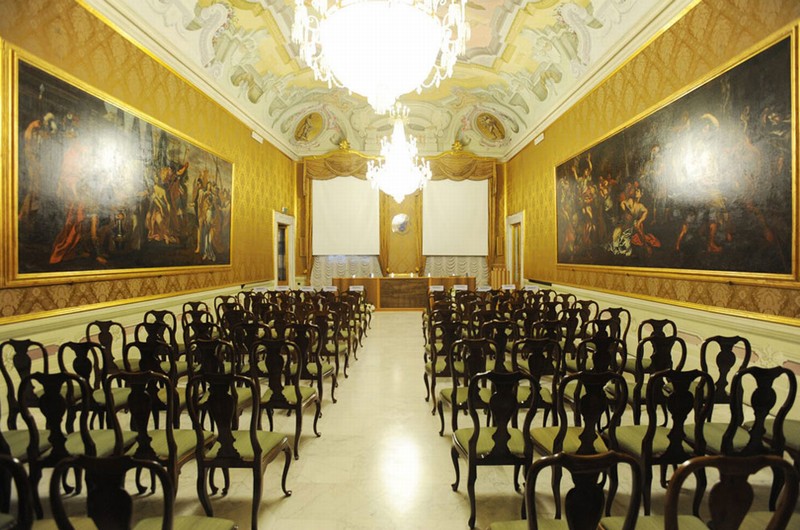
Lucca is very easy to reach both by bus as well as train from both Pisa and Florence, making it perfect for anyone getting around solely on public transportation. The train station is right outside the southern walls, with an entrance below the balcony of San Colombano that brings you right behind Lucca’s cathedral and into the heart of the small walled town. When arranging your travel by plane, book a flight to Florence (Petrola) or Pisa (Galileo Galilei) airports. The easiest way to reach Lucca is from Pisa airport that requires a 25 minutes public bus or train travel right from the airport. From Florence the travel by bus or train takes about 50 minutes. Make sure that your flight arrives earlier during the day as after 22.00 buses or trains to Lucca are no longer available. Taxis are available in Pisa airport and will cost around 50 Euro until your destination in Lucca. If your flight arrives later in the night, book a room for the night in either Florence or Pisa, and start your travel to Lucca in the morning since buses and trains are available from 5.30.
See an interactive map:
HERE
Conference participants are fully responsible for arranging the accommodation and travel to Lucca.
9th Euroacademia International Conference:
Europe Inside-Out: Europe and Europeanness Exposed to Plural Observers
Lucca, Tuscany, Italy
24th – 25th of April 2020
Deadline: 23rd of March 2020
[In order to facilitate better travel arrangements for selected participants, the paper proposals are analyzed on a constant basis through regular meetings of the Selection Committee and therefore a response to the application will be delivered in maximum 5 working days after the application. Earlier applications are encouraged.]
Make sure you receive an automated notification message after filling and sending the Application Form (check SPAM folder also). If no message is received in more than 5 minutes, please send your abstract proposal also by e-mail to [email protected]
In order to apply on-line click the link
HERE











